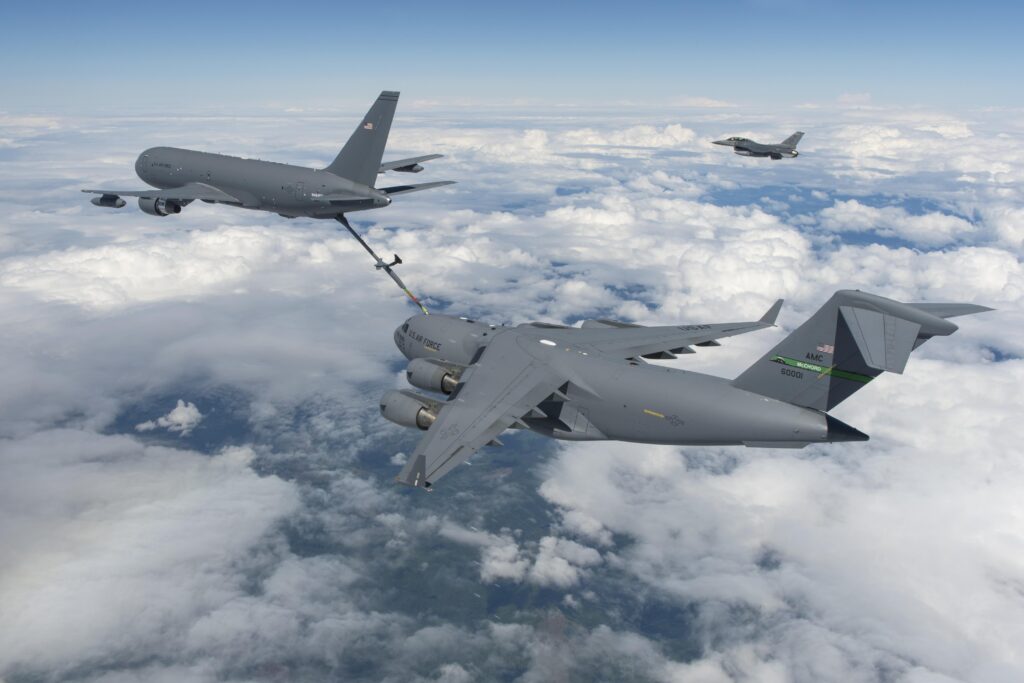Years Late, It’s ‘Pass-Fail’ Now For Boeing’s KC-46 Tanker: Gen. Miller
Posted on

A KC-46 tanker refuels a C-17 transport in mid-air.
AFA 2019: “Boeing has not made the progress needed,” to fix a crucial system on its KC-46 aircraft, meaning that, combined with other problems afflicting the program, the fleet of crucial airborne tankers will be ready for war years later than its contract with the Air Force required.
The cascade of problems with the plane, which Boeing called low risk, promising to deliver 18 combat-ready aircraft in 2017, is unlikely to deliver war-ready planes for several more years, Gen. Maryanne Miller, the head of Air Mobility Command, made clear today. The Air Force has been worried for some time and has withheld about $500 million in payments for delivered planes until Boeing fixes the major problems.
The service has accepted delivery of KC-46s since January even though they aren’t ready for prime time. They are too important for combat, the service argued. But the discovery of Foreign Object Debris (FOD) in a range of places and aircraft caused the Air Force to temporarily halt delivery in February. And none of the major problems with the plane have been solved yet. Miller said the service believes Boeing has tackled the FOD problem, first identified in late February. The service hopes to accept delivery of about three KC-46s each month, getting back to the planned rate of delivery.
“We’re eight months into accepting our airplanes and Boeing has not presented a solution that has met all the parameters,” Miller said. “In a couple of months, that’s what I’m looking for. A pass-fail grade for Boeing on this.”
From the beginning, Boeing sold its plane as a low-risk solution to the need for a new tanker. The fleet of 179 the Air Force plans to buy will replace the creaky KC-135s, the last of which were produced in 1965. The age of the original tankers is why Miller said: “I need to get this [plane] into the fight.”
Miller said Boeing’s solutions for the Remote Vision System (RVS), which Breaking D readers know is crucial to effective tanking since the planes don’t have a window to watch the boom, just aren’t good enough. The cameras used to monitor the fueling systems feed three images to the screen and Boeing has struggled to provide effective depth perception, which makes it pretty challenging to mate the boom and manage refueling. Repeatedly calling the RVS acuity problems complex and capable of solution, Miller said she had faith the company would fix it. But they aren’t there yet.
The House also clearly is worried. The House Armed Services Committee version of the fiscal year 2020 National Defense Authorization Act says it “believes that the Secretary of the Air Force has several viable options to ensure future tanker capability, to include acquiring a non-developmental commercial derivative tanker (emphasis added) while “bridging” from the end of the KC-46A production to the new developmental tanker. The Air Force Secretary would be required to submit a report on the future of airborne tankers for the military by Sept. 30, 2020.
Subscribe to our newsletter
Promotions, new products and sales. Directly to your inbox.
